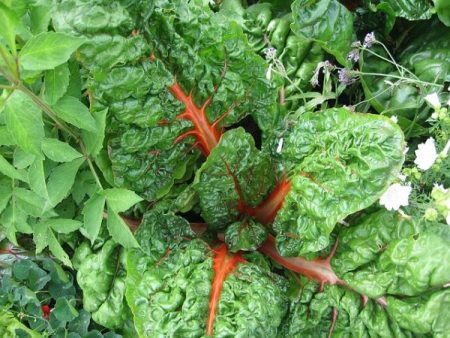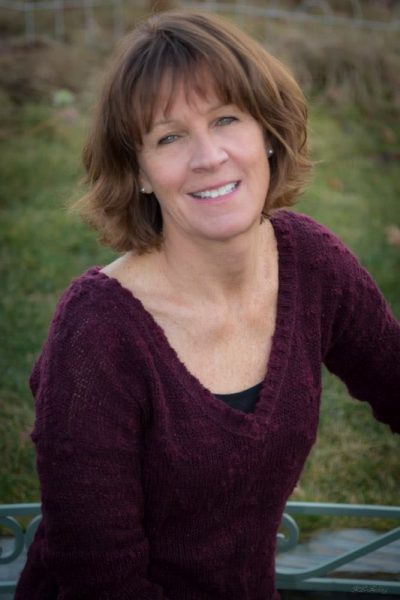Guest post by Mary Moskowitz, an integrative health and cancer coach at Mainely Health and Nutrition.
The diagnosis
A cancer diagnosis is a life-altering event not only for you but your family and friends as well. Hearing the “C” word from your doctor is frightening, to say the least!
In 2007, while shopping at my local grocery store, I received a call from my family doctor informing me that I had infiltrating ductal carcinoma (breast cancer) and that I would be getting a call the next morning from the cancer center to explain what this meant. My first thought was that she had the wrong person! I had always considered myself to be healthy. I exercised regularly, never had a weight problem and ate fairly well. So what gives?
Knowing little about the disease or the fact that there were so many different types, stages and grades was overwhelming. I was immediately thrown into a foreign world of doctor visits, tests and treatment options, none of which sounded fun!
A month later, I got through surgery and eventually started to come out of my fog. While sitting in oncology, waiting for my daily radiation treatments, I began noticing the patients around me. Many looked emaciated and sickly. The disease and treatments seemed to be robbing them of their mind, body and spirit — leaving a shadow of the person they once were. We would all be sitting there, in our lovely, matching gowns, waiting to be shuffled through the cancer matrix, not really knowing what to expect or what lay ahead for us now that our lives had been turned upside down.
To be honest, though, I never really felt like I was a part of that world. I felt like a bystander, observing others dealing with this life-threatening condition. They were determined to do whatever it took to “fight” their disease, trusting that some day they would be a cancer survivor, wear a pink ribbon and return to their pre-cancer life.
An integrative approach
In the past, I had overcome other medical complications by finding the answers myself. I was never one to settle for the “one size fits all” approach of our modern day culture and medical system. This time wouldn’t be any different. I began researching the lifestyle factors that could have contributed to my getting this disease in my 40s. This was more than bad genes as one in three people today will be affected by cancer. Our genetic pool doesn’t change that quickly. There was so much more at play here.
On my last visit with my oncologist, she told me “Don’t worry about anything. I’ll do the worrying for you.” I knew that as soon as I walked out of her office, she would move onto her next patient and not give me a second thought. It was my job to take control of my own health and figure out what I needed to do to get better and stay cancer free. I wasn’t going to just sit around waiting for my next exam to see if the cancer had returned.
After thanking the oncologist, I told her that I was going back to school to study nutrition and do everything I could to avoid having to see her again. It was a shocking truth that no one discussed diet and lifestyle with me as part of my cancer treatment plan (although that has changed somewhat). With any other disease, e.g., heart, diabetes, high blood pressure. there are dietary interventions that all patients are instructed to follow. So why is cancer any different?
I got certified as an integrative health and cancer coach so I could figure it out myself. I work with Colleen Tetzlaff, an Integrative Oncology Nurse Practitioner who is an amazing resource in our community. Colleen supports her patients in navigating the cancer matrix, using the best of conventional and alternative interventions to assure more optimal outcomes in their healing process. Integrative therapies work “outside of the box” and utilize many different tools. They don’t just suppress the symptoms, they also treat the underlying factors that contribute to an illness in the first place.
We now know that 90% of disease is attributed to stress, diet and lifestyle. Unless we change the underlying factors that create dis-ease in our bodies, we cannot hope to truly heal and overcome these dreadful conditions. Cancer is a multifaceted disease that requires a multifaceted approach: medical, nutritional, environmental, spiritual and emotional. Without addressing each of these foundational pillars, we can’t expect to become disease-free and fully heal our bodies.
What can you do?
Take control of your health! Be proactive in finding the right information, practitioners, therapies and nutritional strategies that will work for you and your specific needs and challenges. You deserve a more personalized approach, there isn’t a one-size-fits-all answer. What works for one person may not work for you. Reach out for the answers and support you need and deserve.
My lifestyle suggestions
- Eat organic, Earth produced food. Make food your medicine, not your enemy. Processed, sugary foods feed cancer cells. Only eat whole, real foods that will support your recovery and give your body the nutrients it is crying for. We should be more focused on the chemicals in our food than the calories. When you are eating the right foods your body will do what it needs to do. Binge on veggies, not chips.
- Move your body daily in ways that feel energizing and enjoyable to you. Don’t sit for long periods of time. Stand, stretch and breathe often. Five minutes of movement done periodically throughout the day adds up.
- Take a break from technology. Get outside daily and enjoy the sun, fresh air and beauty surrounding you. This is the best therapy there is and it is free!
- Sleep! Our bodies need seven to nine hours a night in a dark room. Quality sleep gives your body the time it needs to detox, repair and heal.
- De-stress! Chronic stress takes a serious toll on your body and elevates cortisol. When cortisol is chronically elevated your risk for breast cancer significantly increases. Learn to meditate daily, take yoga classes, find a therapist or whatever it takes for you to find more peace and balance in your life.
- Avoid toxic body care products. These chemicals are absorbed straight into your blood. If you can’t eat them you probably don’t want to be rubbing them into your skin. That goes for sunscreens too. Find a more natural brand that won’t do more harm than good.
- Lastly, don’t take life too seriously. Laugh, play and focus on the abundance around you. This may be the greatest advice I can give you.
A recipe from Mary
Here’s a tasty (and healthy) recipe for Sesame Swiss Chard. Mary says Swiss chard is a phytonutrient-rich nutritional powerhouse. It is an excellent source of vitamins K, A and C as well as a good source of magnesium, potassium, iron and dietary fiber.

ICKH / Pixabay
Sesame Swiss Chard
Ingredients
- 2 bunches Swiss chard (you can also use kale or spinach in this recipe or a combination of your favorite greens)
- 1 sweet red pepper (or orange or yellow pepper)
- 1 tablespoon extra-virgin oil or unrefined coconut oil
- 1 tablespoon organic, unrefined sesame oil
- 1 1/2 cups coarsely chopped mushroom
- 2 cloves garlic, minced
- 1/4 cup lightly toasted sesame seeds
- soy sauce to taste
Instructions
- Remove the stems from the chard
- Chop the stems and leaves and place them in separate bowls
- Chop the mushrooms
- Thinly slice the red peppers
- Heat the sesame oil and olive oil over medium heat in a shallow frying pan
- Roast the sesame seeds until lightly toasted
- Add garlic and saute for 30 seconds
- Remove and set aside
- Add stems and saute for 2 minutes
- In the same pan sauté the stems for about 2 minutes (add more oil if needed)
- Add in peppers and saute for 1 minute
- Add mushrooms and saute about 5-7 minutes (until all liquid is out)
- Add the chard leaves, cover and cook for about 3 minutes just until wilted
- Season with soy sauce
- Add in sesame seed/garlic mixture and mix well
Serve and Enjoy!
Mary Moskowitz MS CHC is an integrative health and cancer coach, specializing in cancer recovery and thyroid health. She offers a 90-minute Health Discovery Session during which you can discuss your nutritional/wellness challenges with her and get the professional attention and support you deserve to get you started on your healing journey. You can find more information on her website Mainely Health and Nutrition.


Leave A Comment